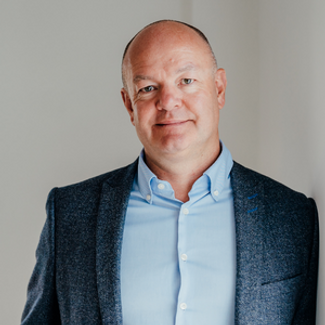Following on from FRAME Recruitment’s Architecture & Interior Design Employment and Industry Update, we wanted to share with you, the questions that Martin Bennell, Managing Director was asked in the run-up to the webinar and during it.

“Has furlough and redundancies caused issues between employers and employees? Is it compromising trust and work ethic?”
There is no doubt that some employees will feel heavily impacted by Furlough and redundancy in their business. It will depend on how well employers have treated employees during this period of change. For staff on Furlough, it has been tough to feel like they’ve been put on the bench and unless they were kept informed during the period, it is very hard to stay motivated. If an employee feels neglected, then they will start to lose trust.
Although we are not certain whether there is a link to work ethic, when employers start to make redundancies or even place people on ‘leave’ for whatever reason, this will begin to compromise trust, unless the employer uses excellent communication skills.
Work ethic may become an issue if businesses overwork the remaining staff and expect them to cover an increased workload. This could lead to ‘Burn out’ which has been a trend in recent months and is recognised as an occupational phenomenon by the World Health Organization.
“Has the market moved away from an employees market to an employers market in a short space of time?”
It has been an employees' market for several years. It was hard for practices to hire, staff were not moving and were being bear-hugged by their employers. Candidates with good experience and skills could be picky in terms of job search and applications made. Counter-offers were common as employers did not want to risk losing talented staff.
In April the statistics clearly show an immediate shift in an employer's market and the dynamic has quickly changed. From a recruitment point of view, The FRAME team have moved from a headhunting approach to a more application-led process.
Suddenly we see that employers have the upper hand and can be picky with the selection process. Employers can weigh up multiple candidates with excellent skills and experience. In this market, candidates will need to consider accepting a lower salary than their previous expectations, expanding location requirements and increasing commuting time. Some may even consider a more junior position than they had previously been in.
“How did the pandemic affect the employment process? What are the strengths and points of improvement?”
The employment process has been affected greatly. We have seen a huge uptick in remote hiring and onboarding. Ensuring new starters have a great onboarding process has meant that practices have had to work hard to deliver an exceptional, human approach to do this successfully remotely.
In general, interviews, profiling and presentations have had to be done via Teams and Zoom. We have also seen face to face interviews with a 2-metre separation in parks as well as an unusual bike ride where a candidate was interviewed.
Shortlisting has become more difficult due to the sheer number of applications per job, as well as the diverse experience different candidates bring.
The pandemic has enabled the speed to interview to increase as well as the removal of interview travel and costs too.
“Are people leaving the sector?”
Yes, many have taken other jobs, but hopefully, just for an interim period – Amazon drivers, COVID testers, and supermarket stacking have all become top jobs in the pandemic. It is interesting as back in the Great Financial Crisis of 2008 the trend was for Architects to take roles as taxi drivers.
This time around, home delivery services have gained popularity and so we have seen popular brands such as Morrisons, Amazon, Tesco and Iceland hire new staff. This has enabled many to earn extra cash whilst on furlough or to have an income if they have been made redundant and find it hard to find work in architecture roles.
In our business, we’re not hearing about people leaving, and all architecture and qualified candidates still want to return.
“How can I stand out in the jobs market?”
In August I released my top 10 tips to stand out in a crowded jobs market on both BDOnline and our FRAME website. Key points include:
Be active, but selective
Spend time perfecting your CV
Invest yourself
“How will the industry adapt to redundancies?”
I sat in on a great webinar that was hosted by BD Online that specifically focused on redundancies in this sector. So to answer this question, I wanted to steal the quote from Sam Jacobs of Sam Jacobs Studio: "In some ways, despite how terrible the situation is, it may create opportunity. Particularly with young people. They can't follow the usual path so these moments of recession, spawn new practices. It happens because there are little or no opportunities available to them elsewhere. It creates opportunities that may never have been if the recession hadn't happened."
“Why should I be expected to take a pay cut as my experience and what I can bring to a practice has not been reduced so why should my pay?”
I can understand the frustration around this. No one wants to feel like they are being underpaid. The important thing to remember is that it could only be temporary. The market is seeing lower salaries but this is due to the pandemic and the hardship that practices have had to face.
Ultimately it is your decision whether to take a role at a lower salary, and you may prefer to be working rather than being sat on the sidelines. Taking a role at a lower salary will at least keep your CV up to date.
Contact Martin Bennell to discuss these questions and answers further.
Join the conversation with FRAME Recruitment
Follow FRAME Recruitment on LinkedIn, Facebook and Twitter for the very latest news, updates, exclusive insights and regular hot jobs in the architecture and interior design sectors.







